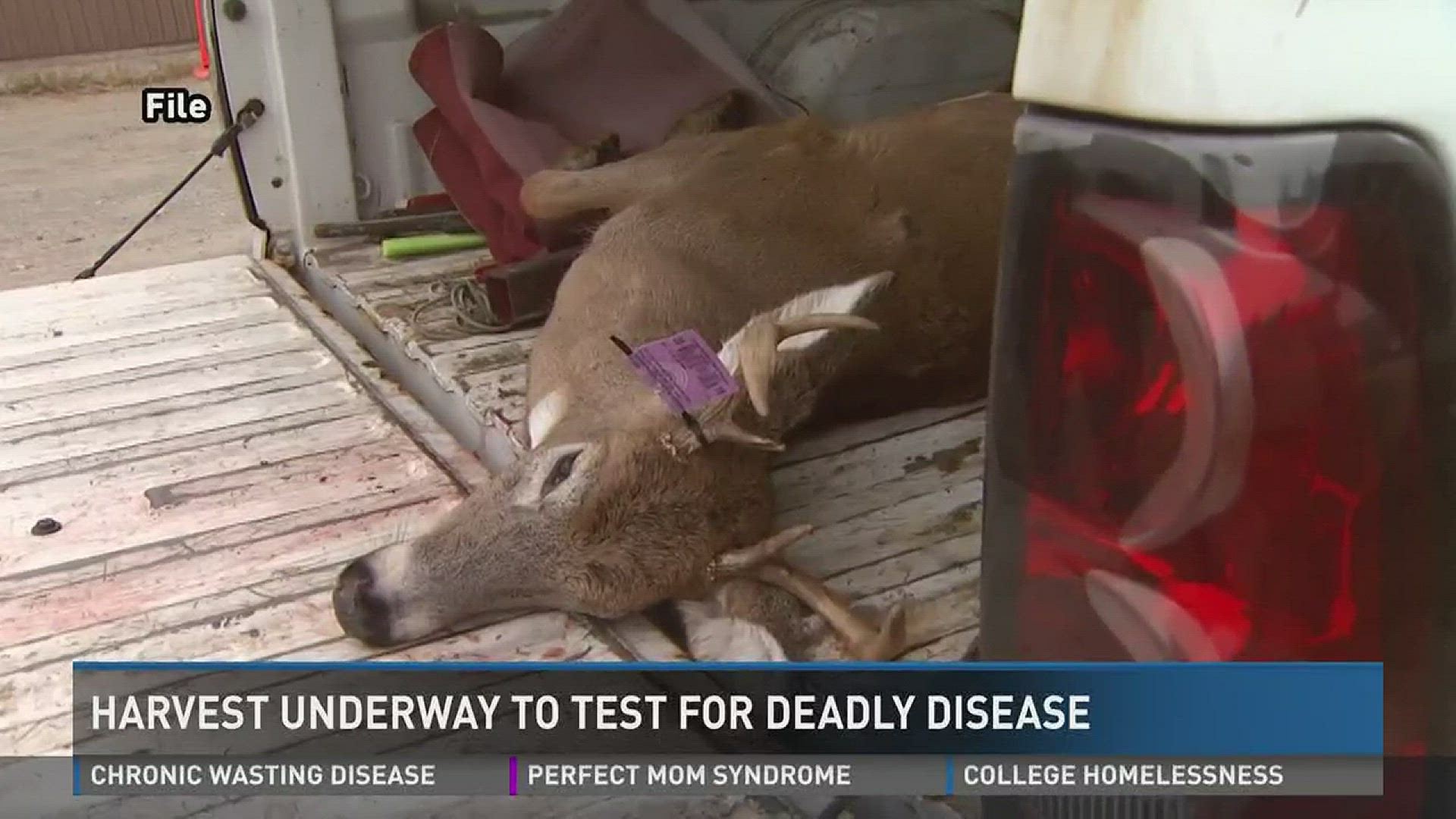The state will begin shooting deer in a two-mile area of Mecosta County to test for Chronic Wasting Disease after it was detected in two deer linked to a private farm near the village of Morley.
Sharpshooters are expected to begin taking deer this week; the state hopes to test up to 3,000 deer in the next year or so to see if the disease has spread into the wild.
“We’re doing sharpshooting basically within a two-mile radius of where we have known reported CWD-positive animals,’’ said Chad Stewart, a deer specialist with the Michigan Department of Natural Resources. “We’re working with local landowners to gain access, to work with them to find a balance between getting samples for our surveillance program and at the same time not compromising their deer herd to an unacceptable level.’’
CWD is a neurological disease that attacks the brains of affected animals, eventually leading to death. It is commonly spread by contact with other infected deer. Nose-to-nose contact between infected animals in a pen and wild deer is a concern for state wildlife biologists.
CWD was confirmed at a Kent County deer farm in 2008. Exhaustive tests of deer harvested near the farm did not show that it had spread to the general deer population; state-imposed restrictions eventually were lifted.
Since then, it has been found in free-ranging deer in Ingham and Clinton counties.
Tests conducted last month on deer provided by a Mecosta County farm confirmed the presence of CWD. The state created a CWD surveillance area in nine townships near the deer farm. They are Mecosta, Austin, Morton, Hinton, Aetna and Deerfield townships in southern Mecosta County and Cato, Winfield and Reynolds townships in northern Montcalm County.
Stewart said hunters will play a major role in the surveillance program, starting with the archery season that begins in October and the hugely popular firearm deer season that begins Nov. 15.
“We will be setting up some mandatory check stations in that area so hunters can bring their deer in and have them tested,’’ he said. “It really is a partnership with hunters.’’
Tanner Havens, who works at the family-run Frank’s Sporting Goods in Morley, said he believes the upcoming harvest is necessary to protect the integrity of the local herd.
“I hunt around here; I would like to know whether there is CWD in these deer,’’ he said.
Plans to test up to 3,000 deer from a nine-township area may have some impact on the local deer population, but Havens said he doubts it will be significant.
“I don’t see that it’s going to cripple it; it may slow it down for a year or two,’’ he said. “We’ve had mild winters; they’ll be back up to where they were.’’

